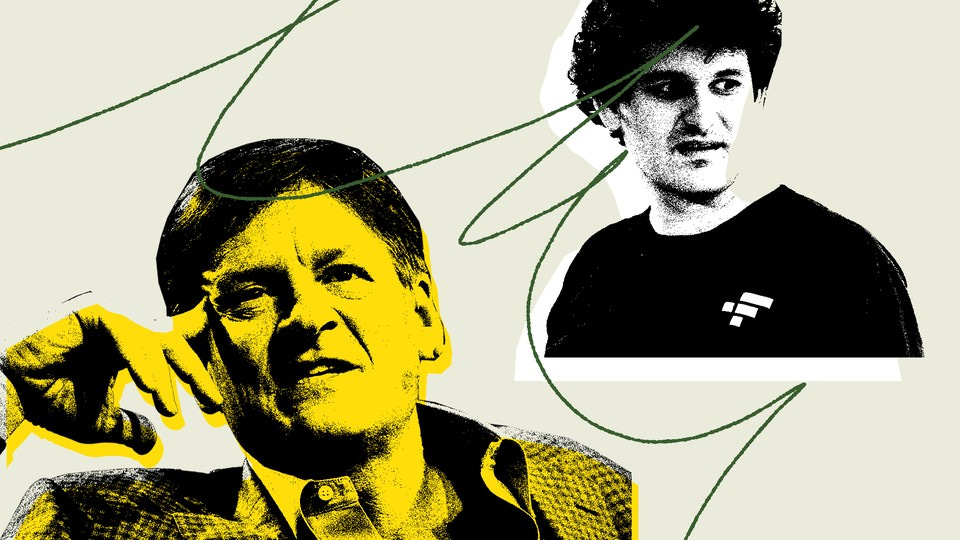Happy Friday!
It’s so weird and alchemical how politics works, isn’t it? When a protester interrupted Theresa May’s conference speech a few years ago to give her a fake P45, it felt crushingly embarrassing—because May was already on the skids, the incident became part of that narrative.
But Keir Starmer is ahead in the polls, Labour conference was once again weirdly happy and united, and as a result, he looks . . . kind of awesome here?
Labour have already started fundraising off his adlib (possibly prepped in case of just such an incident) about “power not protest”, sending out a fundraising email with an offer to buy a SPARKLE WITH STARMER T-shirt.
Anyway, if Labour had any sense, they would have done a THINGS CAN ONLY GET GLITTER T-shirt.
Helen
PS. This week has also made me think that Starmer must be bloody relieved to have suspended Jeremy Corbyn months ago, rather than have to answer for his equivocations on the terror attack on Israel.
PPS. On the Private Eye podcast this week, Ian asked me whether Starmer was good or lucky, in relation to Scotland. A more eloquent version of my answer is this: yes, he is lucky to have been in charge when the SNP imploded, but he is only well-placed to capitalise on that because of Labour’s recovery in England (which blunts English voters’ fears of being stiffed by an SNP-Labour coalition) and because Anas Sarwar is a decent leader with whom Starmer has a good working relationship.
The Journalist And The Fallen Billionaire (The Atlantic)
Notoriously, Michael Lewis prefers to write about unsung heroes, such as the scientists who foresaw the danger of the coronavirus or the oddball short sellers who predicted the 2008 financial crash. Here, though, he is confronted with a character who morphed into a villain halfway through his writing process. Over and over, I wondered if Lewis had constructed a box marked unconventional maverick takes on the banks and was trying to chop the limbs off the actual story to squash it inside.
Many anecdotes appear designed to present Bankman-Fried as a special star-child, but I think they make him sound like a prick. He plays a video game while on a Zoom call with Vogue’s Anna Wintour. He showers popcorn all over his private jet. He asks his closest colleagues to vote on a course of action and then ignores it. The word that captures him more than any other is careless. He is careless of his appearance, careless of other people’s feelings, and careless of their money.
I love Michael Lewis. I did not love his book on fallen crypto billionaire Sam Bankman-Fried, to the extent it will require significant Gell-Man amnesia to enjoy his next book.
A Conversation With Philippa Perry (Suzanne Moore, Substack)
SM Talk to me about babies!
PP A baby is part of its mother’s body for nine months. It's like you and the baby are one, though culturally we're encouraged to think of the baby as something separate. Just because you've given birth to your baby and they're out of your body doesn't mean to say you're not still in a system [with it].
I think we're all in systems. Like you and I talking right now are a system of Suzanne and Philippa, and what happens between us happens on this middle empty cushion. So it's not all about me; it's not all about you.
But in Western society, it's all about the individual. People hate the idea that they're just a grain of sand on the beach. They don't like to think that they're just one starling in the flock.
SM The risk of connection?
PP The lack of connection is a big one. There's no risk-free way of doing it. Quite often people write to me say, for example, ‘How can I tell my friend I don't want to be a bridesmaid?’ as though there's a risk-free way of doing that. There isn't.
Philippa Perry is a good agony aunt (unlike some people I could mention MARIELLA) and I think she’s right about babies—it’s why maternity units have become so keen on skin-to-skin contact right after delivery. It’s also one reason I’m cautious about surrogacy.
Quick links
“Tiffany blue, UPS ‘Pullman brown’, Barbie pink, T-Mobile’s magenta, etc. Christian Loubutin has exclusive rights to red soles on shoes, Fiskars owns orange scissor handles, and whatever the hell The Wiffle Ball, Inc. is has a trademark on yellow for use in bats.” Should you be able to copyright a colour? (Some Unpleasant Arithmetic, Substack)
Can you hear the people groan? Fergus Morgan defends Just Stop Oil interrupting Les Mis (The Crush Bar, Substack)
“Robert Caro comes up with the last sentence of his book first and sticks it on the board over his writing desk. The artist Yves Klein set himself the challenge of creating art in one colour only and discovered a new kind of blue; the Beatles set themselves the challenge of writing a song with only one chord and made Tomorrow Never Knows.” (Ian Leslie, Substack)
‘At times, [Taylor] Lorenz’s prose sounds, itself, like the product of an algorithm: “Building on the Digitour experiment, Magcon had reset the equation.”’ (Slate)
“A friend who used to be a nurse had advised me it was essential to be a ‘polite pest’. You must be prepared to question what they’re telling you, but always do it politely.” Interesting to see Mark Steel’s deeply held leftwing beliefs collide with the reality of the dysfunctional NHS bureaucracy. I should also say: Mark has always been a gent when we’ve done the News Quiz together, and I hope he feels better soon (Guardian).
I talked a bit about Morgan McSweeney, Keir Starmer’s brain (or maybe fist) on Page 94 this week, but here’s a long profile of him by Patrick Maguire (The Times, £)
Nepotism corner: I did a fun event this week with turbo-liberal Yascha Mounk. His book The Identity Trap takes social-justice seriously, and attempts to explain the intellectual lineage of concepts such as “standpoint theory”. We had a fun argument after about whether maternity leave was equality or equity.
The latest Blocked and Reported starts off talking about Ibram X. Kendi (featured on episode 4 of my podcast The New Gurus) but ends up being a retrospective on that whole 2020 moment.
“11,000 years ago, cheetahs almost went extinct. Evidence suggests that, in the entire world, there were as few as seven cheetahs alive. This is an example of a population bottleneck, in which the population of a species drastically shrinks, often due to environmental change or a cataclysmic event that wipes most individuals out. The cheetahs had such an extreme population bottleneck that all modern cheetahs are extremely similar genetically—so much so that you can take skin from any cheetah and graft it onto another. The host animal’s body will immediately accept it as though the other cheetah’s skin is its own.” (Brian Klaas, Substack)
This feels like a great excuse to post this photograph I took of a cheetah last month. We initially thought it was pregnant but it turned out to be a male who had just eaten an extremely large breakfast (relatable). What an absolute unit. See you next time!







Please do continue to be very cautious re surrogacy, and also adoption - the separation of a baby from its birth mother causes pre verbal trauma. The disruption of the connection which Philippa refers to, which corrupts the development of the infant’s brain and nervous system, has lifelong effects. This wasn’t widely known during the peak relinquishment and adoption years of the late sixties and early seventies, but it is now. Many of us middle aged adoptees are now coming into consciousness about the realities of this deeply flawed social experiment we were victims of and which continues to affect our lives, and our childrens’. The mother-baby bond needs to be acknowledged, encouraged and preserved at all cost, to avoid further generations of traumatised individuals.
“THINGS CAN ONLY GET GLITTER”
Er, I think it’s better to avoid any possible word association football with Paul Gadd.